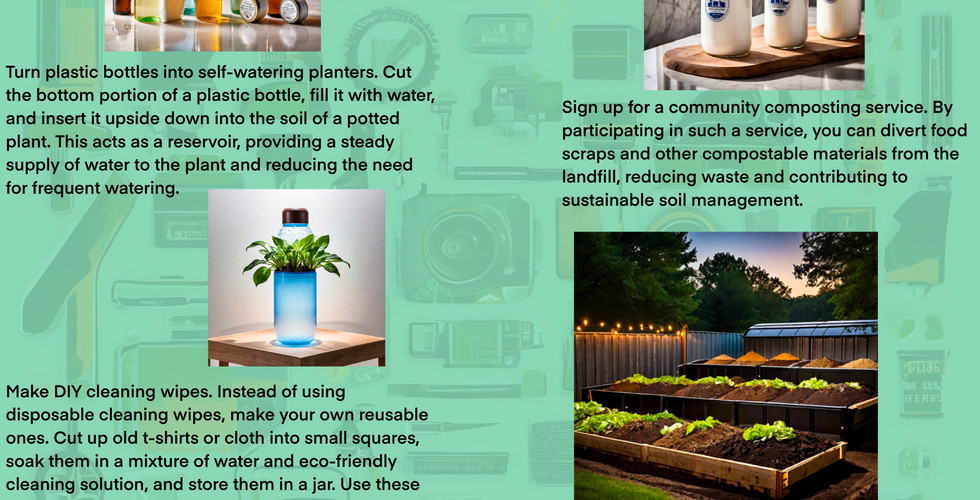No Single-Use Plastic Campaign
- Apr 18, 2024
- 3 min read
Updated: Apr 26, 2024
Single-use plastics, such as plastic bags, bottles, and straws, contribute significantly to pollution, harming wildlife, ecosystems, and human health. These plastics often end up in our oceans, where they break down into microplastics, posing a grave threat to marine life and entering the food chain, ultimately affecting human health. Furthermore, the production and disposal of single-use plastics contributes to greenhouse gas emissions and exacerbates climate change. By transitioning to reusable alternatives and promoting sustainable packaging solutions, we can reduce plastic pollution, protect our planet's precious ecosystems, and safeguard the health and well-being of current and future generations. It is imperative that we take collective action to halt the proliferation of single-use plastics and embrace more sustainable practices for the sake of our planet's future.
Mission:
To lead the way in promoting a sustainable future by advocating for the reduction and elimination of single-use plastics through education, innovation, and collaboration.
Goal:
1. Raise awareness about the negative impact of single-use plastics on the environment.
2. Encourage people to find innovative solutions that replace single-use plastics.
3. Advocate the local government to ban the single-use plastic tableware and invest in the development of reusable materials alongside its policy implementation.
4. Persuade big corporates to shoulder the social responsibility on reduction of plastic production and transition to sustainable packaging solutions.
5. Urge the local grocery store to discontinue the provision of plastic bags.
6. Inspire long-term behavior change towards more eco-friendly practices.
Here is what you can do to stop traditional single-use plastic bags:
Bring Your Own Bag: Get into the habit of bringing your own reusable bags whenever you go shopping. Keep a few reusable bags in your car, purse, or backpack so you're always prepared.
Choose Alternatives: Opt for alternatives to plastic bags, such as reusable cloth bags, paper bags made from recycled materials, or bags made from compostable or biodegradable materials.
Engagement: Encourage fellow members to share the resource digitally through email newsletters, social media platforms, or on their websites. This can help spread awareness to a wider audience.
Printed Materials: Print and post the resource in visible areas of your place of business can be effective. This could include common areas like break rooms, reception desks, or bulletin boards. Please use recycled paper or sustainable printing methods.
Support Bans or Fees: Advocate for or support local initiatives that ban or impose fees on single-use plastic bags. Many cities and countries around the world have implemented measures to reduce plastic bag usage through regulation.
Educate Others: Spread awareness about the environmental impact of single-use plastic bags and encourage others to make the switch to reusable alternatives.
Use Multi-Purpose Bags: Invest in multi-purpose bags that can serve multiple functions, such as tote bags for shopping or backpacks for carrying items, reducing the need for single-use plastic bags.
Reuse and Recycle: If you do end up with single-use plastic bags, try to reuse them whenever possible. You can use them for lining small trash bins or picking up pet waste. When they can no longer be reused, make sure to recycle them properly.
Encourage Retailers to Offer Alternatives: Encourage local retailers to offer incentives for customers who bring their own bags, such as discounts or loyalty points.
Support Legislation: Support legislation at the local, national, and international levels aimed at reducing plastic pollution and promoting sustainable alternatives.
By taking these steps, individuals can significantly reduce their reliance on traditional single-use plastic bags and contribute to a cleaner and healthier environment.








Comments